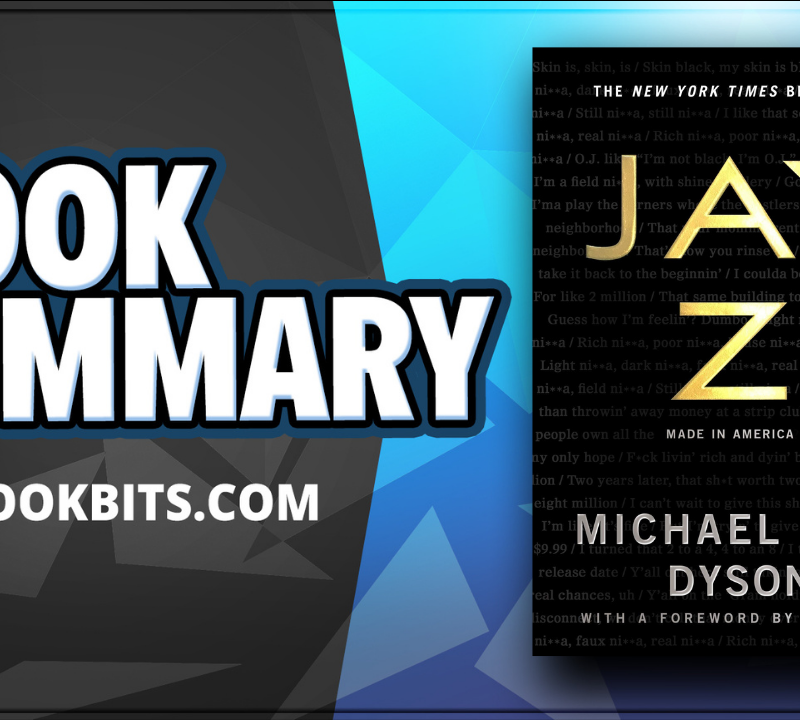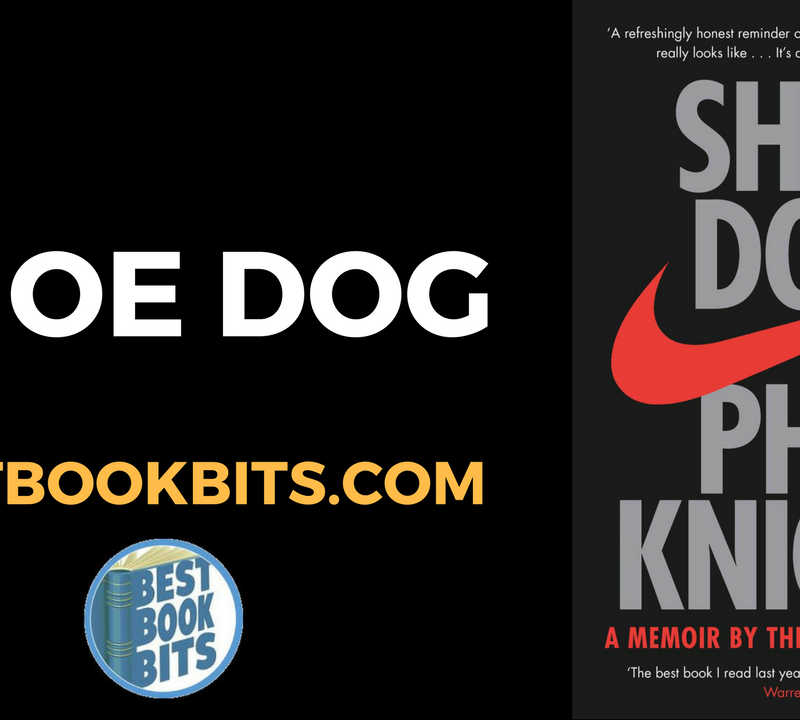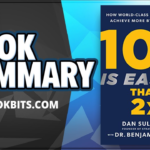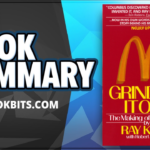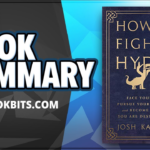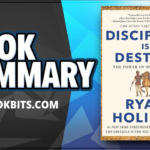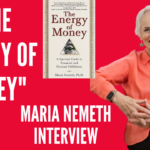★DOWNLOAD THIS FREE PDF SUMMARY HERE
? MY FREE BOOK TO LIVING YOUR DREAM LIFE”
? SPONSOR BESTBOOKBITS BY USING PATREON
? SUPPORT BESTBOOKBITS BY CLICKING THE LINKS BELOW
- 150 PDF Summaries
- Coaching Program
- Subscribe to My Channel
- Website
- Spotify
- Book Club
- Mailing List
There were 3 big surprises in the book:
Alibaba wasn’t the “overnight success” that I thought it was
In fact, it’s 20 years old
China is big. Really big.
Yes, we all know that China has more than 1.2 Billion people but I little human brains have trouble processing the shear scale of a number that big
Alibaba sends out 30 million packages per day
Jack Ma built one of the first websites for China, and co-founded one of the first China-based companies that built websites for clients in 1995
Chapter One
Jack likes to say that his company’s success was an accident: “Alibaba might as well be known as ‘one thousand and one mistakes.’”
In its early years, he gave three explanations as to why the company survived: “We didn’t have any money, we didn’t have any technology, and we didn’t have a plan.”
But let’s look at the three real factors that underpin Alibaba’s success today: the company’s competitive edge in e-commerce, logistics, and finance, what Jack describes as Alibaba’s “iron triangle”.
The E-commerce Edge
Unlike Amazon, Alibaba’s consumer websites Taobao and Tmall carry no inventory. They serve as platforms for other merchants to sell their wares.
Taobao consists of nine million storefronts run by small traders or individuals.
Attracted by the site’s huge user base, these “micro merchants” choose to set up their stalls on Taobao in part because it costs them nothing to do so.
Alibaba charges them no fees. But Taobao makes money—a lot of it—from selling advertising space, helping promote those merchants who want to stand out from the crowd.
The Logistics Edge
On Singles’ Day 2015, orders placed on Alibaba’s websites generated 467 million packages, requiring more than 1.7 million couriers and four hundred thousand vehicles to deliver the goods.
China today has a veritable army of couriers. On foot, bicycles, electronic bikes, trucks, and trains they are the unsung heroes of the country’s e-commerce revolution.
Chinese consumers spent more than $32 billion on package deliveries in 2014. The number increased by more than 40 percent in a year.
Without the low-cost delivery that the courier services provide, Alibaba would not be the giant it is today. To survive in a cutthroat industry, some of the courier firms have adopted clever methods to keep costs at rock bottom. In Shanghai, for instance, couriers shuttle back and forth on the subway, passing packages over the barriers to one another to avoid buying multiple tickets.
In response to the inefficiency of what was then the United States Post Office. In China, the e-commerce gold rush has stimulated the rise of more than eight thousand private courier firms, of which twenty major companies stand out.
Together they handle more than 30 million packages a day and employ more than 1.5 million people across six hundred cities.
Cainiao is building a propriety information platform that knits together logistics providers, warehouses, and distribution centers across the country. Alibaba owns 48 percent of Cainiao,
Yet with Cainiao Alibaba has shored up the most important asset of all: trust. Customers and merchants know they can count on the products getting where they need to be, on time.
The Finance Edge
In financial services, Alibaba’s most important asset is Alipay, its answer to PayPal.
Alipay handles more than three-quarters of a trillion dollars a year in online transactions, three times the volume of PayPal and one-third of the $2.5 trillion global online payments market.
As a form of escrow, Alipay diffuses trust throughout Alibaba’s e-commerce empire.
Twenty percent of all Alipay transactions involve paying for utilities, such as water, electricity , and gas bills. Customers can also buy train tickets, pay traffic fines, or purchase insurance using Alipay, making it the de facto currency of an increasingly digital China.
Chapter Two Jack Magic
Jack once explained that he loves the lead character of the movie Forrest Gump because “people think he is dumb, but he knows what he is doing.”
Jack’s speaking style is so effective because his message is so easy to agree with, remember, and digest.
Jack always speaks without notes.
A close inspection of all of his speeches reveals he has essentially been giving the same speech for the last seventeen years. Yet by subtly tweaking his message to match the mood and expectations of the crowd, he somehow manages to make each speech sound fresh.
Jack is a master at appealing to people’s emotions, Humor is a big part of it.
Jack’s set pieces, his one-liners and anecdotes, and the way he combines them are essentially the same as the “bits” that comedians use to make up their routines.
With his tales of overcoming challenges and defying the odds, Jack regularly drives some in his audience to tears, even hardened business executives.
Jack’s Mantra: “Customers first, employees second, and shareholders third.” Jack describes this as Alibaba’s philosophy.
Employees are discouraged from ever complaining—a pet peeve of Jack’s—and encouraged instead to shoulder personal responsibility, carrying out or delegating tasks rather than waiting for orders from on high.
The “Six Veins” of Alibaba’s “Spirit Sword” are “customer first, teamwork, embrace change, integrity, passion, and commitment.”
Chapter Four Hope and Coming to America
These single-product towns can represent 80 percent or more of the production of individual commodities—not just in China but worldwide. Shaoxing is “textile city” and Yongkang is “hardware city,” churning out 30,000 steel doors and 150,000 motor scooters every day.
Taizhou is known as “sewing machine city” and Shenzhou as “necktie city.” Haining calls itself “leather city.” There is even a “toothbrush city”.
Yiwu itself claims to be China’s “sock city,” producing annually more than three billion pairs of socks for companies like Walmart and Disney, although Datang, near Hangzhou, also claims to be “sock city,” producing more than eight billion pairs each year.
Jack recalled his first online session: “My friend Stuart . . . said, ‘Jack, this is Internet. You can find whatever you can find through the Internet.’ I say really? So I searched the word beer. Very simple word. I don’t know why I searched for beer. But I found American beer, Germany [sic] beer and no Chinese beer. . . . I was curious, so I searched ‘China,’ and no ‘China,’ no data.”
Intrigued, Jack asked Stuart for help. “I talked to my friend, ‘Why don’t I make something about China?’ So we made a small, very ugly-looking page . . . [for the] translation agency I listed on there.”
The site for Hope Translation was just text, without any images, plus a telephone number and the price for translation work.
Jack later recalled to the journalist Charlie Rose: “It was so shocking, we launched it nine forty in the morning, twelve thirty I got a phone call from my friend. ‘Jack, you’ve got five emails.’ I said, ‘What is email?’” Three emails came from the United States, one from Japan, and one from Germany.
Jack set about formulating the idea for a new business—helping Chinese companies find export channels online—and pitched the idea of a partnership with VBN.
Chapter Five China Is Coming On
China Pages
As sales pitches go, asking people who had never heard of the Internet to fork over 20,000 renminbi ($2,400) up front to create, design, and host a website they could never see was a challenging one. Jack worried that people thought he was defrauding them. “I was treated like a con man for three years,” he said.
“It took three and a half hours to download the front page. . . . I was so excited.”
“From then on, I have held a firm belief: When I start businesses in future, I will never hold the controlling stake of a company, making those controlled by me suffer. I will give plenty of understanding and support to lower levels. I have never once had a controlling stake at Alibaba. I am proud of this. I am the CEO of the company, because I lead it with [my] wisdom, courage, and resourcefulness, not capital.”
Chapter Six Bubble and Birth
After his struggles with Hope Translation and China Pages and an uncomfortable period working for the government in Beijing, Jack went on to found Alibaba at the beginning of 1999.
Jack decided to call his new venture Alibaba, a curious name for a Chinese company.
Jack has been asked many times why he chose an Arabic name for his company rather than something derived from his passion for Chinese martial arts or folklore. Jack was attracted, he said, by the “open sesame” imagery, since he hoped to achieve an opening for the small and medium-size enterprises he was targeting.
He was also looking for a name that traveled well, and Alibaba is a name that is easy to pronounce in many languages. He liked the name since it came at the beginning of the alphabet: “Whatever you talk about, Alibaba is always on top.”
Jack says the idea came to him for the website on a trip to San Francisco: “I was having lunch, and a waitress came. I asked her: ‘Do you know about Alibaba?’ She said, ‘Yes!’ ‘What is Alibaba?’ And she said, ‘Open Sesame.’ So I went down to the street and asked about ten to twenty people. They all [knew] about Alibaba, Forty Thieves, and Open Sesame.
Chapter Seven Backers: Goldman and SoftBank
Jack has always been dismissive of business schools: “It is not necessary to study an MBA. Most MBA graduates are not useful. . . . Unless they come back from their MBA studies and forget what they’ve learned at school, then they will be useful. Because schools teach knowledge, while starting businesses requires wisdom. Wisdom is acquired through experience. Knowledge can be acquired through hard work.”
“Masters of negotiation always listen, don’t talk. Those who talk a lot only have second-rate negotiation skills. A true master listens, and as soon as he moves his sword, you pretty much collapse.”
Chapter Eight Burst and Back to China
“If you can’t tolerate your opponents, you will be definitely beaten by your opponent. . . . If you treat your opponents as enemies, you have already lost at the beginning of the game. If you hang your opponent as a target, and practice throwing darts at him every day, you are only able to fight this one enemy, not others. . . . Competition is the greatest joy. When you compete with others, and find that it brings you more and more agony, there must be something wrong with your competition strategy.”
Chapter Nine Born Again: Taobao and the Humiliation of eBay
“The pioneers take the arrows, settlers take the land”
The SARS (severe acute respiratory syndrome) virus outbreak started in southern China in 2002,
Although it sickened thousands and killed almost eight hundred people, the outbreak had a curiously beneficial impact on the Chinese Internet sector, including Alibaba. SARS validated digital mobile telephony and the Internet, and so came to represent the turning point when the Internet emerged as a truly mass medium in China.
Millions of people, confined to their homes or dormitories for days or weeks on end, looked to the Internet for information or entertainment.
Crucially for Alibaba, SARS convinced millions of people, afraid to go outside, to try shopping online instead.
“One of the greatest investments of our lifetime has been New York City real estate,” she said, “and investors made the highest returns when they bought stuff during the 1970s and 1980s when people were getting mugged. . . . The lesson is that you make the most money when you buy stuff that’s out of consensus.”
By starting with C2C, it made the price factor very appealing. Individuals can be happy to make even five mao (less than 1 U.S. cent) on a sale.”
Taobao’s decision to forgo charging fees was not without risk, since it forced it to look to other ways of generating revenues, especially if the site became popular and drove up operating costs. But making the site free for both shoppers and merchants turned out to be the key factor in ensuring Taobao’s triumph over eBay. A research paper that analyzed more than a decade’s worth of transaction data on Taobao concludes that in the early phase of the company’s history, attracting merchants, who in China are especially allergic to paying fees, was more important than attracting shoppers. Taobao’s popularity was fueled by a “virtuous circle”: More merchants and product listings meant more shoppers were attracted to the site, which meant more merchants and products, etc.
As predicted, as soon as the China site was migrated and integrated into the global site, the impact on EachNet’s traffic was disastrous: It dropped off precipitously. Customers in China started to experience long delays and time-outs on the site. Why would they bother to wait for eBay in China—a site that charged fees—when Taobao was available instantly and for free?
Changing one word on the site would take nine weeks. Changing one feature would take one year.
Although Taobao had its merits, Alibaba could hardly believe its luck as the ineptness of this supposedly world-renowned company became apparent.
“You’ve got to have a set of products uniquely designed for this market by Chinese. It is not a market where you can take a product or a system that works in Europe or the United States and export to China.”
“We made one big mistake. We should have left EachNet on their own platform in China. Instead what we did was put EachNet onto the global eBay platform because it had worked everywhere. It had worked in Western Europe, it had worked all over. . . . We had bought all these baby eBays and basically migrated them to one common platform, which had a lot of advantages. One is cost. Second is speed to market, because when you roll ‘buy it now’ you could roll it to thirty countries as opposed to do it incrementally. But we made a mistake in China.” She gives credit to Alibaba’s achievements in designing Taobao to suit the local market:
“eBay may be a shark in the ocean, but I am a crocodile in the Yangtze River. If we fight in the ocean, we lose, but if we fight in the river, we win.”
Chapter Ten Yahoo’s Billion-Dollar Bet
On April 12, 1996, Yahoo went public on the Nasdaq,
Only a year after incorporating the company, Jerry Yang and David Filo were each worth more than $165 million on paper. Within three years they were billionaires.
Google announced its withdrawal from China.
eBay, Yahoo, and Google had all recognized that China’s Internet market would become massive. But as the market grew, so did regulatory barriers and the competitive challenge from entrepreneurial and well-financed companies like Alibaba, Baidu, and Tencent.
Chapter Eleven Growing Pains
Tencent, with more than 740 million QQ instant messaging users
Although its share price took a beating, Alibaba would survive the global financial crisis. And as with SARS five years earlier, the crisis created some unexpected dividends for the company. First, Jack realized that the downturn gave him a way to increase the loyalty of his paying customers. He initiated a dramatic reduction in the cost of thier subscriptions, tellin David, “Let’s be responsible to our customers. They are paying fifty thousand yuan; we can give them thirty thousand yuan back.”
“The stock market went crazy,” David recalled, as investors called him up to complain, “What? You’re losing sixty percent of your revenue.” But there was a method to Jack’s madness. Jack was serious about putting the customer first. Jack was “always trying to understand how to get the money back later. He’s just not greedy about getting the money first.” Looking back on the price cut, David concluded that the move was well timed. “Revenues didn’t drop at all. Customer volume growth offset the price drop completely. And after the financial crisis was over we didn’t raise the prices. We created an opportunity to sell them more value-added services, more of an Internet-style model. Jack actually told me he wanted to change it anyway. The crisis gave him the opportunity.”
Chapter Twelve Icon or Icarus?
So, Alibaba found itself in New York. Selling 12 percent of the company, it raised $25 billion, the largest IPO in history.
Demand for BABA shares outstripped supply by over fourteen times.
BABA closed the day 25 percent higher than the initial price, valuing the company at over $230 billion, more than Coca-Cola. Among Internet companies, Alibaba was second only to Google, higher even than Amazon and Facebook.
CEO David Wei instructed his team to look at countries with the lowest efficiency in their retail sector.
Without AliExpress even opening offices there, but with Russian and Portuguese language capabilities added to the AliExpress website, Russia and Brazil became early success stories. Demand from Alibaba’s customers in Brazil at one point exceeded over three hundred thousand packages a day, before a slowing economy and the weakening real hit the company’s business there. Demand in Russia, especially for clothing and consumer electronics, was so strong that AliExpress reportedly even broke the Russian postal service, leading to the dismissal of its boss. Today Russia accounts for a fifth of AliExpress’s sales.
★DOWNLOAD THIS FREE PDF SUMMARY HERE
? MY FREE BOOK TO LIVING YOUR DREAM LIFE”
? SPONSOR BESTBOOKBITS BY USING PATREON
? SUPPORT BESTBOOKBITS BY CLICKING THE LINKS BELOW

